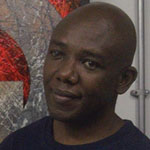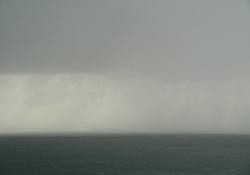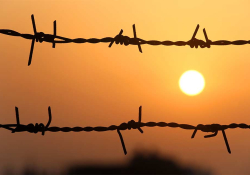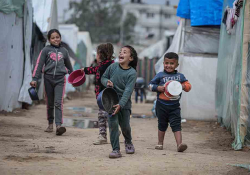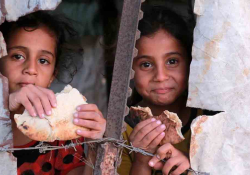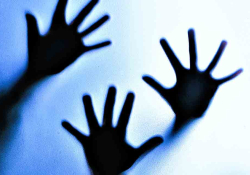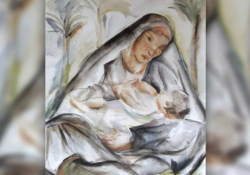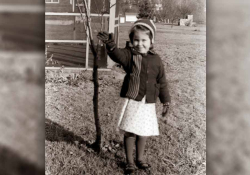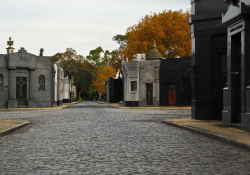Abidjan ’99: A Journey through Disbelief
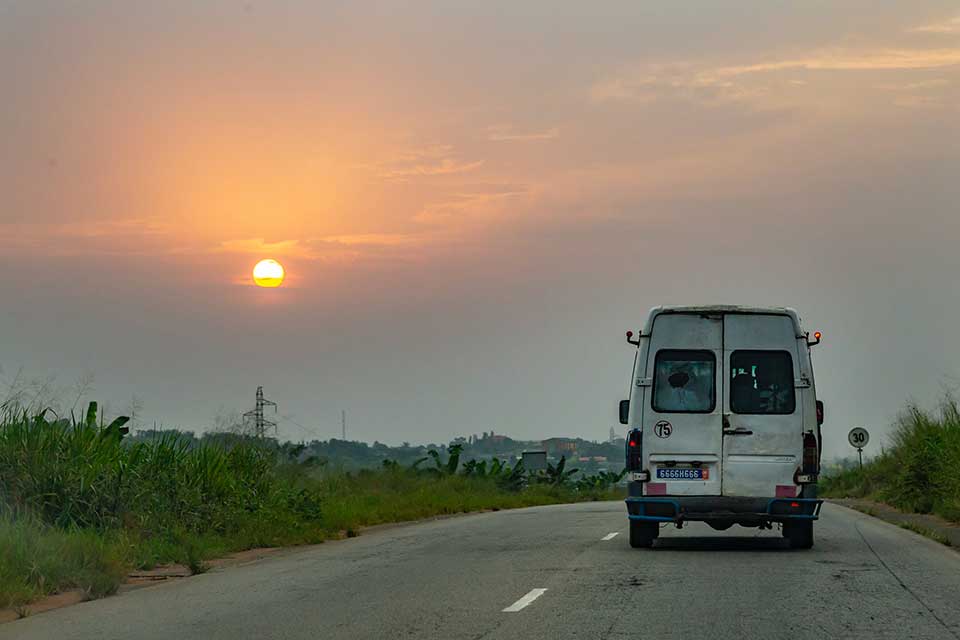 Looking for relief and new possibilities, a lecturer at the University of Ibadan travels to Cape Town, but the route is anything but direct.
Looking for relief and new possibilities, a lecturer at the University of Ibadan travels to Cape Town, but the route is anything but direct.
By 1999 the massive exodus out of Nigeria had attained a crescendo. In that auspicious year, the military handed over power to civilians after decades of military rule. The citizenry was weary from being browbeaten for years by military adventurists. In the 1980s the brain drain commenced, emptying industry, academia, and medicine of the finest minds.
I belonged to a writers’ collective nominally headed by the irreplaceable Harry Garuba, a poet and popular lecturer at the University of Ibadan, who decamped to the KwaZulu-Natal province of South Africa to take up a teaching post in 1998. Harry eventually made a considerable impact as a distinguished professor of African studies and English literature at the University of Cape Town. The civilian dispensation in Nigeria did not assuage societal fears regarding possible military coups d’état, civil strife, and general uncertainty.
But my professional circumstances, on the surface, looked good. I had taken up a lectureship at the University of Ibadan where I had initially met Garuba. Immediately, I was bombarded with work and expectations. It was difficult to breathe regularly. There was a haste and frenzy about everything on campus. Obviously, the sense of national malaise and unease filtered into all spheres of life, including my own little corner of the world.
I needed some kind of relief, and an opportunity to visit Cape Town, South Africa, for an academic conference cropped up. It was to be my first visit to Nelson Mandela’s country, which during the time held aloft the African flame. Perhaps Cape Town would change my perspective on things, open up possibilities undreamed of.
There was desperation even in those early days of human flight to the South African Eldorado. The South African High Commission then located at southwest Ikoyi, Lagos, was teeming with applicants and all sorts of desperados. People were tense and edgy, as if they were fleeing a war zone. I saw a slightly corpulent celebrity evangelist, Uma Ukpai, looking like a corrupt senator in resplendent flowing robes of azure and silver embroidery. The trendy automobile that brought him swerved dramatically to a halt, deposited him like a feudal despot, as he polished his manicured fingernails and picked his teeth. He was quite a sight. What a charmed existence, all in the name of God.
Ukpai did not expect to endure the hurly-burly of acquiring a South African visa. He had minions working on his behalf. The visa application process was further complicated by the fact that South Africa was hosting an international sports event, which meant that a deluge of athletes, sport administrators, political hangers-on, and groupies suddenly all needed their visas on short notice. Those of us who weren’t part of that crowd were duly relegated. I traveled a number of times from Ibadan to Lagos, hoping to pick up my visa, and each time was told it wasn’t ready.
I stood dripping with sweat among the last batch of visa hopefuls outside the gates of the embassy underneath the blazing sun.
On the day I was to travel, it still wasn’t ready. I had given up hope on embarking on my first South African journey. I was exhausted and disillusioned by the constant to-ing and fro-ing without success. I stood dripping with sweat among the last batch of visa hopefuls outside the gates of the embassy underneath the blazing sun. The gates swung shut, as if for the final time, and then a few minutes later opened again. An embassy official, a stout lady, called out my name. I was immobile, lost in quiet despair and despondency. Then she called out my name again, and I snapped out of my reverie, incredulous at the unexpected turn of events.
Was it still possible to travel? I had to meander through unpredictable traffic jams in order to reach the congested airport at Ikeja. My mad dash for the airport had to happen during the rush hour, with all kinds of workers and commuters heading back home after a possibly joyless day. How was I ever going to make it? I had barely packed because the dream of ever traveling had been fading rapidly with the endless delays in securing a visa. I still had to go to a travel agent to collect my ticket through impossible traffic since this was before the days of electronic tickets. My heart was being yanked from one end of its pendulum to the other, rattled by hope, disbelief, and disillusionment all at the same time.
Somehow, miraculously, I made the flight, which was another matter. It wasn’t a straight flight to Johannesburg. Instead, we had to pass through Abidjan in Côte d’Ivoire on the West African coast. I had only twenty dollars with me and a couple of dry sausage rolls for the entire trip. I reached Abidjan in the evening but missed the connecting flight to Johannesburg. I couldn’t afford a hotel, or so I thought, with twenty dollars. The next flight to Johannesburg was scheduled for two nights’ time. I sat feeling entrapped in the airport, watching people coming and going. My French was grossly inadequate, and I had no clue what would happen next. There were only plastic chairs at the airport, the concrete floor was cold and hard, and I hadn’t figured out how I would pass the night.
Even where I had to sit was doubly uncomfortable as it was very near a transit gate through which travelers sauntered endlessly. Some of them couldn’t help bumping into me. I spent hours in discomfort, helpless and clueless. And then I sighted him. He looked like an excessively eager Ivorian travel agent. He noticed I wasn’t about to travel anytime soon and approached me. He asked if I needed a place to spend the night. I answered in the affirmative, and then he asked how much I had. Twenty dollars, I replied. He said that wouldn’t do but he’d come up with a plan.
Was I being kidnapped? Would I be robbed and become a victim of ritual murder?
He ferried me through the labyrinths of the airport into the warm night’s breeze, after which he hailed a taxi cab. Had I made a mistake? He and the taxi driver were speaking in a language I didn’t understand! Where was he taking me? Was I being kidnapped? Would I be robbed and become a victim of ritual murder? I was freaking out! What a fool I was! How could I have fallen so casually into the arms of a complete stranger who had dispossessed me of all the money I had? I was screwed.
As I kept freaking out, he, as my guide, asked me to chill. He showed me his official badge, saying he was a licensed agent. But to me, it didn’t mean anything. How was I to verify that? He looked like one specimen of a guy. He was of medium build, smartly dressed, and had been pacing the halls of the airport. At the time, I had thought he might be a customs official who had just lost his job. He constantly kicked as he strutted as if to free himself of the discomfort caused by his underwear. Or perhaps he had a bad rash on his groin. Yet there was a certain air of unburdened professionalism about him.
The taxi took us to a motel about five kilometers from the airport. Even though it wasn’t too far away, I couldn’t have made my way back to the airport with absolutely no money. I had only a duffel bag and nothing else and settled quickly into a rundown room, which was infinitely better than passing the night in a plastic chair or on a concrete floor beneath the thud of strange shoes.
The deal I had with him, as my guide, was that he would take me to the hotel, put me up in a room, and then come to fetch me the following morning, all for a fee of twenty dollars. I didn’t believe he would stick to his side of the bargain. What if he failed to show up the following morning? I would be screwed for the umpteenth time.
I could hardly get a wink of sleep the whole night as I kept agonizing over whether indeed he would turn up. Ripples of fright coursed through me the entire night and the following morning as I waited and waited. I had been hoping he would show up first thing in the morning, but he didn’t. Who could I call? I kept asking the receptionist at the motel when he was going to show up, and she said nothing to pacify me. She merely waved me off.
Each tick of the clock signaled my abandonment. I was stranded in a nondescript Abidjan motel several countries from Nigeria with no money or contacts. My mind tossed around trying to imagine the worst possible scenarios. And then just when I thought I was about to pass out from a heart attack, he strolled in casually, fetched my bag, paid my bill, and took me out to breakfast.
For breakfast, we had plates of steaming rice, generous earthen bowls of tomato sauce, and fish at an open-air eatery. He had made good on his word and had even taken me to breakfast. I was more than famished. As the morning gusts drummed on my flesh, I felt enormously lightened by continuous waves of mental and emotional relief.
After the delicious roadside meal, he took me in another cab back to the airport to catch the next flight to Johannesburg.
Cape Town
